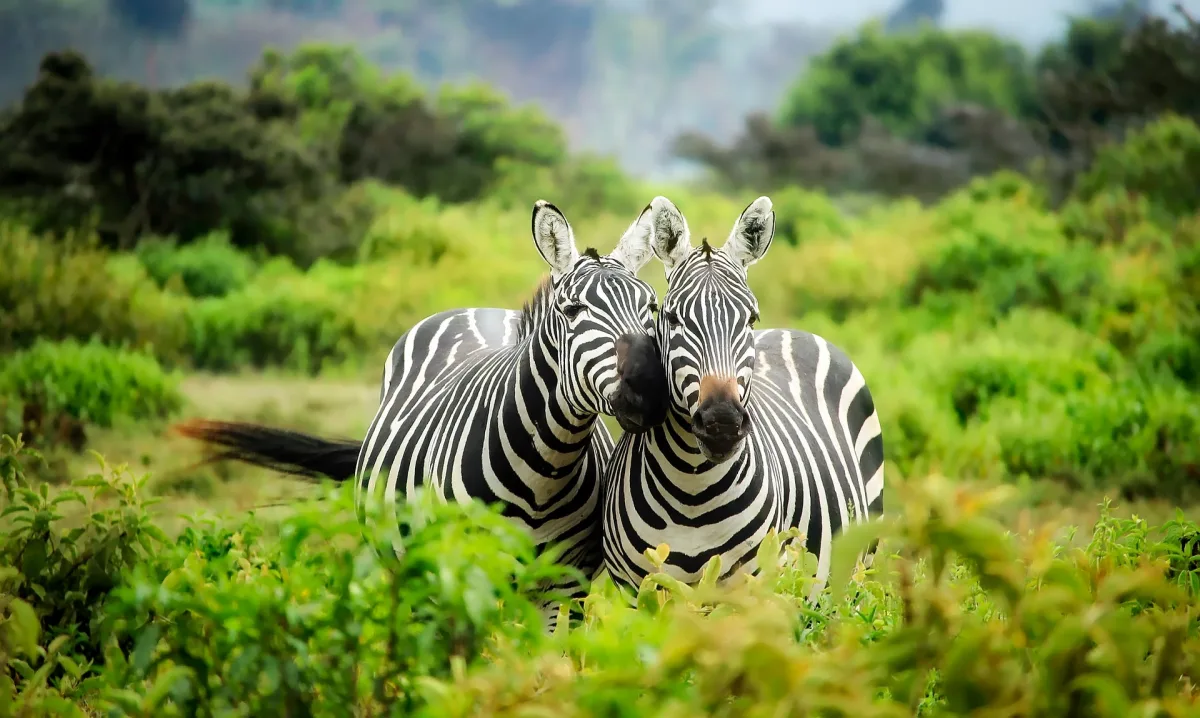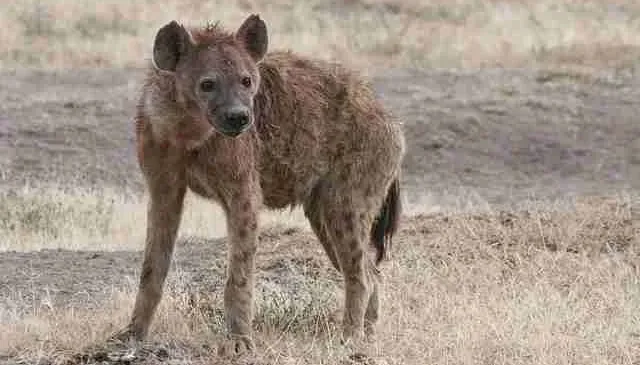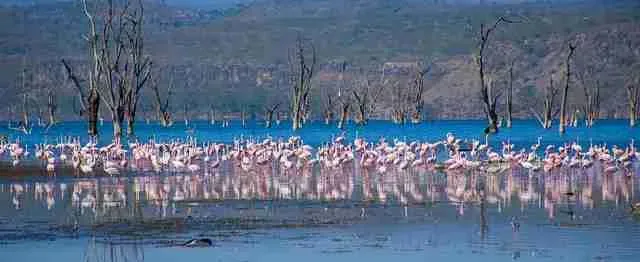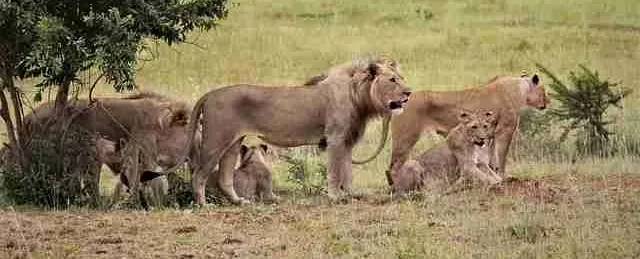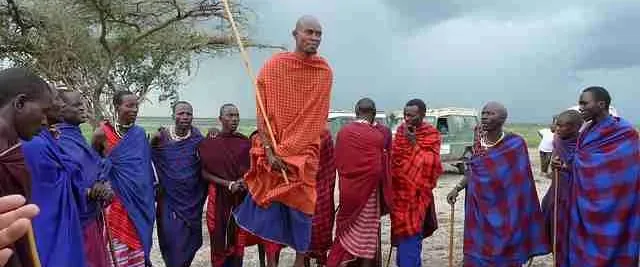
The Ultimate Kenya Safari
This 9-day safari is the ultimate insight into a Kenya that is never experienced by the typical safari packages. Enjoy the historic luxury of Kenya’s most famous hotel, spend 3 days in an exclusive bush camp on the borders of the Masai Mara and have 4 days in the ultimate beach hideaway with a private beach and crystal-clear blue waters, hidden in a costal forest.
Safari Tours in Kenya
Experience the Beauty of a Kenya Safari
Kenya is one of East Africa’s most captivating destinations, celebrated for its breathtaking landscapes, vibrant culture, and incredible wildlife. Bordered by the Indian Ocean to the east and surrounded by Tanzania, Uganda, South Sudan, and Ethiopia, the country offers a unique blend of natural wonders and cultural richness. Tourism plays a vital role in Kenya’s economy, and its appeal lies in the diversity of experiences it provides.
Explore Kenya’s Stunning Landscapes
Visitors are drawn to Kenya for its spectacular scenery and abundant wildlife. The Great Rift Valley, Amboseli National Park, and the world-famous Masai Mara are among the highlights. These regions are home to elephants, lions, giraffes, zebras, and countless other species, making Kenya a premier safari destination. A Kenya safari offers the chance to witness nature at its most raw and beautiful, whether you’re observing a pride of lions or watching the annual wildebeest migration.
Discover Kenya’s Cultural Heritage
Kenya is not only about wildlife; it is also a land of rich traditions and diverse communities. The country’s cultural heritage is reflected in its many tribal groups, each with unique customs and crafts. Visitors can explore bustling markets and cultural centres to learn about traditional arts such as pottery, textiles, and jewellery. These experiences provide a deeper understanding of Kenya’s identity and the stories behind its artistry.
Comfort and Culinary Delights
Kenya’s well-developed tourism infrastructure ensures travellers have plenty of accommodation options, from luxurious lodges to budget-friendly stays. Alongside this, the country boasts a vibrant culinary scene. Local dishes such as nyama choma (grilled meat) and ugali (maize porridge) sit alongside international cuisine, offering something for every palate. Dining in Kenya is often a communal experience, reflecting the warmth and hospitality of its people.
Sustainable Tourism in Kenya
Sustainability is central to Kenya’s tourism industry. Protecting natural and cultural resources ensures future generations can enjoy the same beauty and heritage. Eco-tourism activities such as wildlife safaris, birdwatching, and cultural tours aim to minimise environmental impact while promoting conservation. Many lodges now use renewable energy sources like solar power and practise responsible waste management. They also employ and train local people, support community projects, and contribute to conservation efforts.
Community-Based Tourism Initiatives
Kenya actively promotes community-based tourism, involving local communities in planning and management. These initiatives guarantee that tourism benefits residents directly while preserving traditions. Homestays and cultural centres allow visitors to experience authentic Kenyan life, learn about customs, and share in daily routines. This approach strengthens cultural preservation and creates meaningful connections between travellers and hosts.
Why Choose a Kenya Safari?
Kenya offers an unmatched combination of natural beauty, cultural richness, and wildlife diversity. Its strong infrastructure and commitment to sustainability make it an ideal destination for travellers seeking adventure and authenticity. Whether you’re exploring the savannah, tasting local delicacies, or engaging with vibrant communities, a Kenya safari promises memories that last a lifetime.
Our Local Tour provides a range of safari options to suit every style and budget. If you can’t find what you’re looking for, contact us and we’ll help you create the perfect experience.
Group and Tailormade Safari Holidays in Kenya
Our Local Travel Experts in Kenya
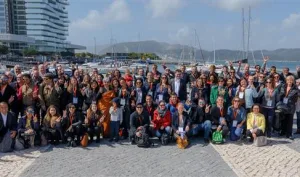
East African born and bred, our local partner's travel execs and management team bring an unusual degree of professionalism and experience to our Kenya travel options. The team are experts when it comes to tailoring an African experience to exceed your expectations. They are committed to a total ban on single-use plastics. To help, they provide each guest with a refillable aluminium water bottle for their safari. Also, they give each vehicle a packet of seedballs and a slingshot. Guests can use them to help reforest Kenya while they travel.
PLACES TO VISIT IN KENYA
The Maasai People of Kenya
The Maasai are a semi-nomadic community native to East Africa, mainly in Kenya and Tanzania. Known for their distinctive customs, vibrant attire, and unique way of life, they remain one of Africa’s most recognised indigenous cultures. Despite modernisation and global influences, the Maasai have preserved their traditions with pride, maintaining a strong cultural identity that continues to inspire admiration worldwide.
A Life Connected to Cattle and Land
Cattle hold a central place in Maasai life. Considered a divine gift, they provide food, clothing, and wealth. The Maasai move with their herds of cattle, goats, and sheep in search of pasture and water, reflecting their semi-nomadic lifestyle. This deep connection to livestock shapes their economy, social structure, and spiritual beliefs.
Distinctive Dress and Artistic Heritage
The Maasai are instantly recognisable by their bright shukas, traditional blankets, and intricate beadwork. Men often wear red or black wraps, while women adorn themselves with colourful necklaces, earrings, and bracelets. Jewellery-making is a cherished craft passed down through generations, symbolising beauty, identity, and cultural pride. Families live in close-knit groups called manyattas, reinforcing the importance of community in Maasai society.
Oral Traditions and Spiritual Beliefs
Storytelling and song are vital to Maasai culture. These oral traditions preserve history and values, ensuring they endure across generations. Spiritual life centres on belief in a single deity, Engai, regarded as the creator of all living things. This faith influences daily practices and reinforces the Maasai’s connection to nature and life’s cycles.
The Warrior Tradition
One of the most distinctive aspects of Maasai culture is the moran, or warrior class. Young men undergo a rite of passage called Eunoto, marking their transition into adulthood. Training includes survival skills, hunting, and community protection, reflecting the resilience and responsibility expected of Maasai warriors.
Challenges and Adaptation
Modernisation, land disputes, and conservation conflicts have posed challenges for the Maasai. Yet, many communities adapt while striving to safeguard their heritage. Cultural tourism, including village visits and guided experiences, offers travellers a chance to learn about Maasai traditions and supports local livelihoods. These initiatives help preserve customs while creating meaningful exchanges between visitors and hosts.
A Living Cultural Legacy
The Maasai remain a vibrant part of East Africa’s heritage. Their distinctive dress, oral traditions, and spiritual beliefs continue to captivate those who encounter them. For anyone planning a Kenya safari, engaging with Maasai culture adds depth and authenticity to the journey, offering insights into a way of life that has endured for centuries.
Lake Nakuru Kenya Safari
Lake Nakuru, located in Kenya’s Rift Valley near the town of Nakuru, is a saltwater lake renowned for its breathtaking scenery and rich biodiversity. As part of Nakuru National Park, it stands among the most visited and celebrated parks in the country. The lake’s serene beauty and abundant wildlife make it a highlight of any Kenya safari.
Covering approximately 188 square kilometres, Lake Nakuru is surrounded by lush forests and open grasslands. One of its most iconic sights is the thousands of flamingos that gather along its shores, turning the lake into a vibrant pink spectacle. These birds are drawn to the lake’s alkaline waters, which support the growth of algae—their primary food source. Alongside flamingos, the park is a vital sanctuary for endangered black and white rhinos, offering visitors a rare chance to observe these majestic animals in their natural habitat.
Wildlife and Conservation Significance
Lake Nakuru is recognised as a Ramsar site, marking it as a wetland of international importance. The lake supports a wide variety of waterbirds, including pelicans, cormorants, and storks. It also serves as a breeding ground for several fish species, contributing to the ecological balance of the region. These diverse habitats make the park a haven for birdwatchers and nature enthusiasts alike.Beyond its wildlife, Lake Nakuru captivates visitors with its scenic landscapes. The surrounding hills, forests, and grasslands offer panoramic views and peaceful walking trails. Scenic drives through the park reveal ever-changing vistas, while designated picnic spots and viewing platforms provide perfect places to relax and take in the natural beauty.
A Must-Visit Destination on Your Kenya Safari
Lake Nakuru offers a unique blend of wildlife viewing and tranquil scenery. Whether you're interested in spotting rhinos, watching flamingos in flight, or simply enjoying the peaceful surroundings, the park delivers an unforgettable experience. Its accessibility and well-maintained infrastructure make it ideal for both first-time visitors and seasoned travellers.For those planning a Kenya safari, Lake Nakuru is a destination not to be missed. It combines ecological significance with stunning landscapes, offering something for every kind of explorer. From guided walks to game drives, the park provides opportunities to connect with nature and appreciate Kenya’s remarkable biodiversity.

